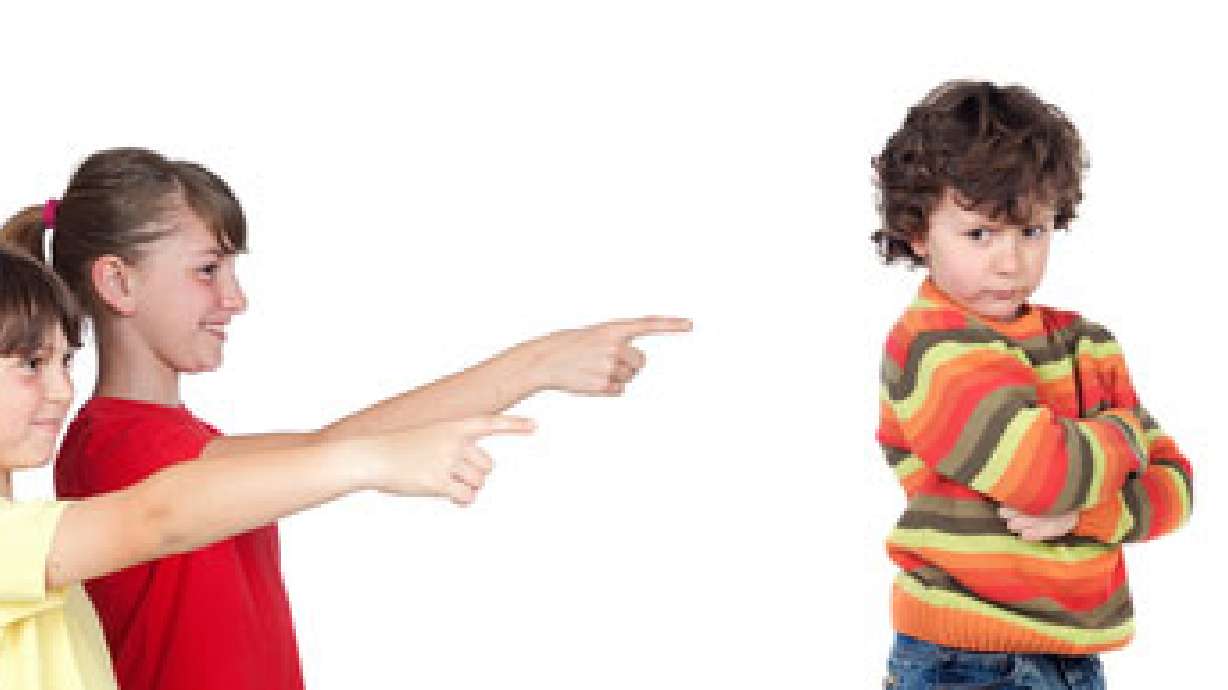Estimated read time: 4-5 minutes
This archived news story is available only for your personal, non-commercial use. Information in the story may be outdated or superseded by additional information. Reading or replaying the story in its archived form does not constitute a republication of the story.
SALT LAKE CITY -- Bullying has received more attention in the media lately, especially among younger kids. Now some Utahns are wondering if we're seeing a new trend: kids becoming meaner at a younger age.
Psychologists say not necessarily.
Preschool bullies
"We've known for a long time that preschoolers can actually get pretty mean. Girls tend to be mean on a relationship-based level; boys tend to be mean on an aggressive level," says Douglas Goldsmith, executive director and chief psychologist at The Children's Center.
Goldsmith says there tends to be more emphasis placed on boys. In fact, that ratio is 3-to-1 because people don't believe girls can be mean.
Researchers see the behavioral difference between boys and girls when observing preschool-age kids.
"The first days we hear this lovely, giggling, joyful sounds because they have fun playing together," explains Goldsmith. "As things move on, we started to realize that girls are just much more subtle than the boys."
You can see that subtlety play out while kids are playing and interacting.
"So, girls will walk past each other and very quietly go, ‘Crybaby;' and then a girl is screaming," explains Goldsmith. "And the other one walks off as though she has no idea what just caused her friend to burst into tears."
Boys, on the other hand, have a different approach to being "mean."
"The boys don't hurt each other's feelings. They're not interested in that," Goldsmith says. "They're interested in getting the ball. ‘I'm going to hit you. I'm going to knock you down. But we're friends again tomorrow.'"
Goldsmith says kid being mean to each other is nothing new. We're just paying more attention.
"Kids have always been mean. I think that's an unfortunate part of childhood," he says.
High school bullies
However, bullying becomes a different story as kids get older. That's when being mean takes on a different form.
"Obviously from Columbine, we understood, probably for one of the first times, the horrible impact of bullying, that there's underdogs in the school that we didn't use to focus on," Goldsmith says. "We focus on the bullies, but we need to pay more attention to the children that are being hurt by the bullies."
Finding a resolution for this is also problematic because, Goldsmith says, adults are asking their children to integrate and socialize with everyone -- something adults don't always do.
"We've thrown in all of the kids into a classroom and said, ‘All of you should be friends together,'" Goldsmith says. "[Rather,] we need to help kids focus on coping strategies."
He says that's because kids today are bullying with a new set of ammunition.
"Now kids have access to weapons and lethal force that they probably didn't have 30 years ago," Goldsmith says.
So while we may think that kids are getting meaner younger, Goldsmith says that's not necessarily the case. It's just that with all the attention given to stories about bullying, we're probably paying more attention.
"Bullying has become common place in our language," Goldsmith says. "We used to call bullying just the mean kid on the playground that pushes all the kids away because no one is supposed to near him."
Combating bullying
Goldsmith says parents need to pay attention to what's happening in their kids' lives. He says simple dinner-table discussions, like asking about a child's day at school, has gone away from the American tradition.
"Tell me about school. What was happening at recess?" Goldsmith suggests parents ask. "Who did you play with today? Did you have fun? Did you feel a little bit teased? Are kids saying mean things?"
Goldsmith says tackling bullying is mainly a family issue, not a school issue. He says parents are not fully aware of what's going on in their children's lives.
"If you can't answer the question: ‘Who are your kids' best friends at school?' ‘What are your child's favorite activities?' ‘What does your child enjoy doing at school?' ‘How does your child initiate play on the playground? Or is your child just waiting around on the playground waiting to be asked to play?'" says Goldsmith. "If you can't answer those questions, you need to pay more attention, because your child may be getting bullied or may be a bully and were unaware of it until it really rises to the top and the principal calls, and that's too late."
E-mail: niyamba@ksl.com








